Text
shameful confession time: the first time i saw Louise Bourgeois's name was attached to one of her works at an art museum while i was high out of my gourd and i had to surreptitiously pull out my phone and do some quick googling to find out if i had forgotten both Jorge Luis Borges's name and his apparent sculpting career (no on both counts)
244 notes
·
View notes
Text
Laying a Foundation
This is a bass guitar:

Based on the name, it's a guitar that plays bass notes. As a piece of engineering, it works just like an electric guitar: metal strings stretch over magnetic pickups, vibrating when struck to produce a low-voltage musical signal. Standard tuning is an octave down from the lowest four strings of a guitar. Certain details stand out—why only four strings?* Why do most bassists pluck them fingerstyle one at a time rather than strumming?
Maybe because it's also a bass that's shaped like a guitar. To be precise, it's a double bass:

"Double" here is not an adjective but a verb. In a classical orchestra, this instrument typically doubles the cello, playing the same parts in a lower register. Like a cello or a violin, it's usually bowed and sometimes plucked.
By the early 20th century, double bass had become popular among jazz players, and it spread from there to blues and eventually rock 'n roll. Whereas orchestral players use the bass mainly to fill out the audible spectrum, jazz players in smaller ensembles see it as a bridge between the rhythmic and melodic parts of the music. (It's tempting to use the past tense, but all of this is still going on.) Hence the walking bassline: by playing steady quarter notes and moving smoothly between the roots of each chord, the bass player reinforces tempo and tonality. In this context, the rich variety of sounds that a bow can produce becomes less important than the rhythmic certainty of a pluck or even a slap.
The main drawback of the double bass is the obvious one: it's fucking big. Like a tuba, kick drum, or these things, the acoustic bass needs to move a lot of air to create audible low notes. Leo Fender, one of the pioneering designers of electric guitars, saw the demand for a smaller, more convenient instrument that could play the part of a double, and the precision bass was born. It takes design cues like the body shape and fretted neck from the guitar, but its tuning and—most importantly—its first players came straight from double bass. The quirks of the bass guitar are the quirks of the double bass, as played by jazz and bebop artists of the 40's and 50's.
My point is, what a musical instrument "is" can't be determined only by seeing and hearing it. Every instrument reflects its cultural context, not only in design but also in the way that it's approached by musicians. I'd like to write more about the bass guitar, some of its influential players, and my experience learning it over the last few years.
*Of course, you can find basses with 5, 6, 7, or more, but 4 strings are about as standard as 6 on guitar.
12 notes
·
View notes
Text
If you've created your conlang right, translation should be hard.
-George Corley, Conlangery Podcast
85 notes
·
View notes
Text
Identity vector. Null vector. Trivial vector. Unvector.
All of these are better names than "zero vector".
3 notes
·
View notes
Text
i don't care about the evidence against the Toba bottleneck event. I want to believe.
0 notes
Text
One hill I will die on is that some stories genuinely work better in first person, and that people who have this rigid opposition to reading first-person narration no matter the context or premise (I see this a lot) are depriving themselves of some really excellent stories.
3K notes
·
View notes
Text
I think I just love people and I love the things that people do.
I've said this before, but I don't really like the notion of culture-the-count-noun, "cultures" as discrete entities. Rather, I think of culture broadly as the whole body of human practices, institutions, and ideas. Naturally, many of these institutions and practices are geographically or socially localized, but always in ways that have fuzzy and ever-shifting boundaries. Culture is just "the things that people do".
But, you see, what I want to stress here is I am fundamentally, at my core, filled with love for the things that people do, and filled with love for and excitement over the world we make together. I am obviously well aware that human society is imperfect, that there is injustice, and so on, but... I'm not quite sure how to articulate this, surely that fact is "secondary"? Surely what is wrong with injustice is that it is a stain on an otherwise wonderful world? If the world was nasty to its core, I don't really think I could get so worked up over injustice. Injustice is bad because life is full joy if we're allowed to access it, the things that humans do and make ("culture") are in general wonderful and joyous things, often marred as they are by the imperfection of the world.
Food is a good example. There is, at the end of the day, no way that I can justify the mass consumption of meat in the present world. I value the lives of animals and so, in some sense, meat consumption is an abomination to me. But when I look at cuisine, broadly, which in most regions of the world does feature meat... I mean, I love cuisine! I love how it tastes, I love the passion people show for cooking it, I love the way it brings people together. These are clichés but they are true, this is in fact the nature of things. Food is endlessly fascinating, endlessly exciting and subtle to the senses; food is an example of human culture, that is to say human activity, at its absolute finest. And yet it is, in the present world, inextricably linked to the slaughter of animals, something I regard as deeply and utterly heinous.
You can have two responses to this. On the one hand, you can disavow all the joys of food, at least food connected to this slaughter, you can become hardened to its joys and hateful of it. I regard this as unambiguously the wrong choice. On the other hand you can... hope for something better? For instance, I hope that one day in the not too distant future, artificially grown meat will allow meat-based cuisine to exist without the killing of animals. And... well, if I was faced today with a button that said "turn everyone on earth into a vegan, thereby bringing about an end to animal slaughter but also to humanity's collective knowledge and practice of meat-based cookery, to all local specialties and family recipes and subtle techniques featuring meat that have not been thoroughly documented", I think I would probably feel I had to press the button. But I would be devastated by doing so. I would regard it as a tragedy of extreme proportions, necessary only to prevent a much greater evil.
I sometimes encounter people, not just with respect to meat but with respect to a variety of topics, who would gladly, enthusiastically, without hesitation push that button. Who would relish the opportunity to cleanse the world once and for all of its imperfections. I regard this attitude as antithetical to almost everything I stand for.
This post was a bit rambling but I think I've made my point.
54 notes
·
View notes
Text


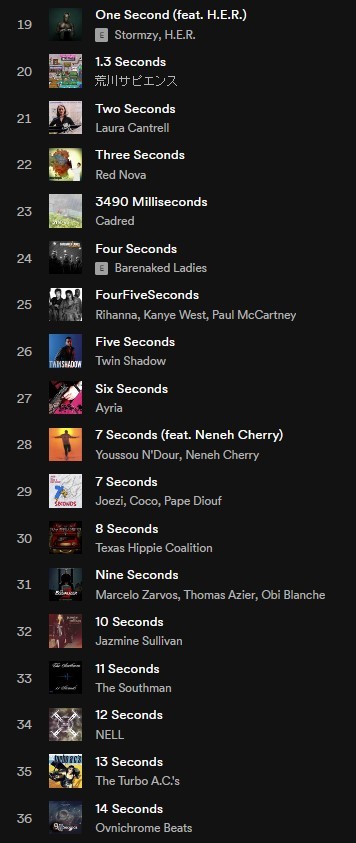
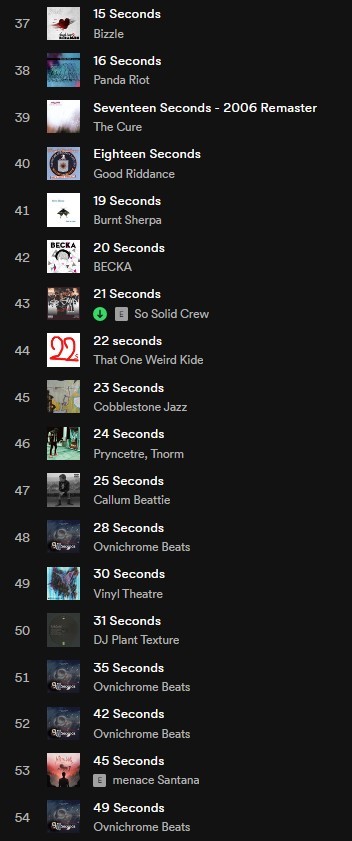
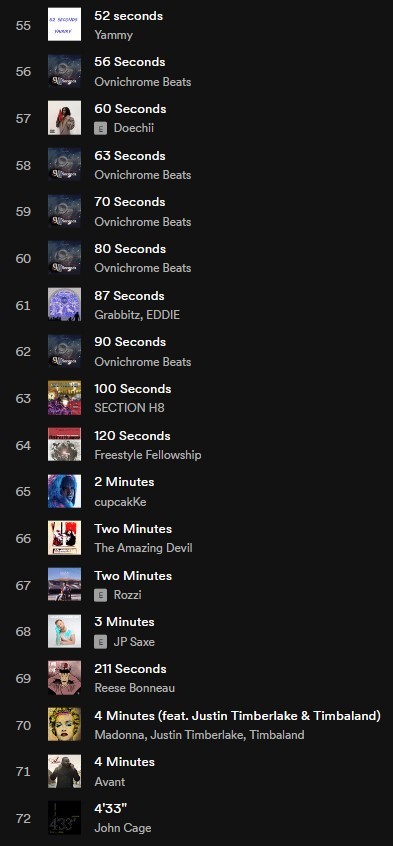
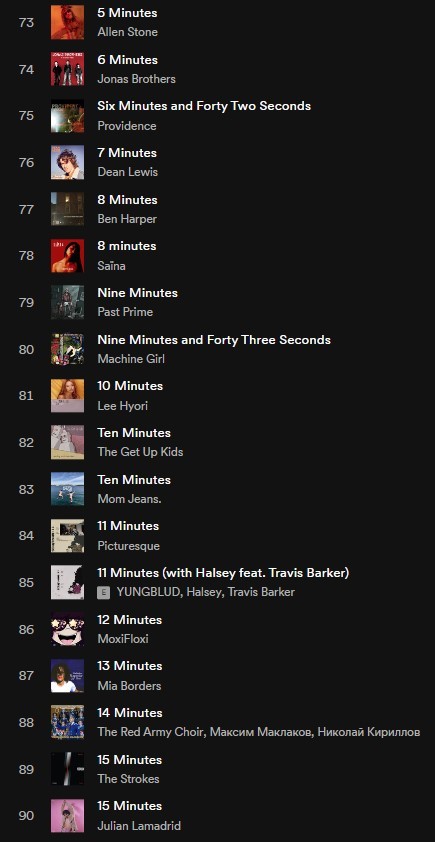
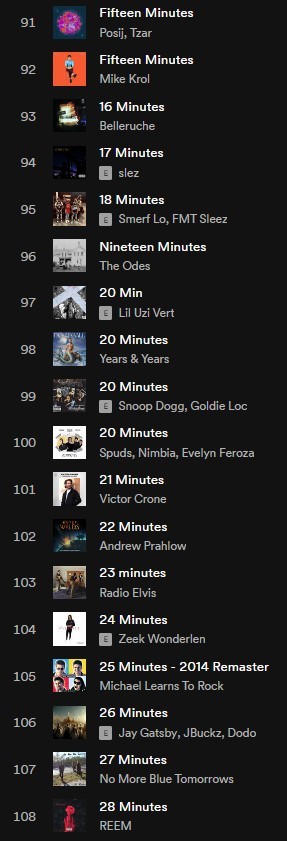
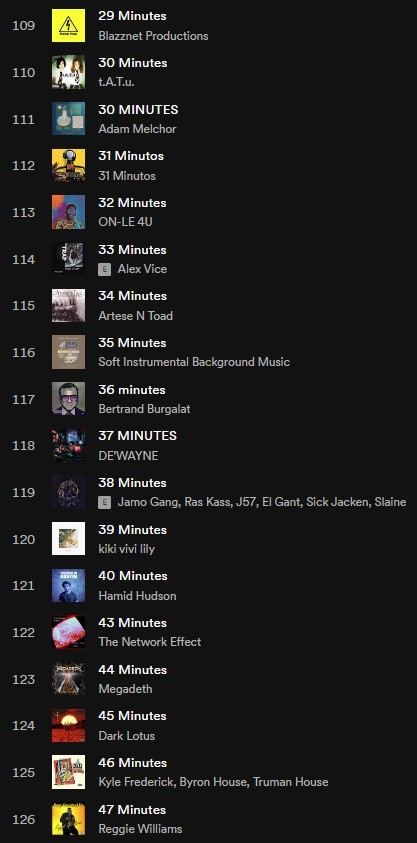
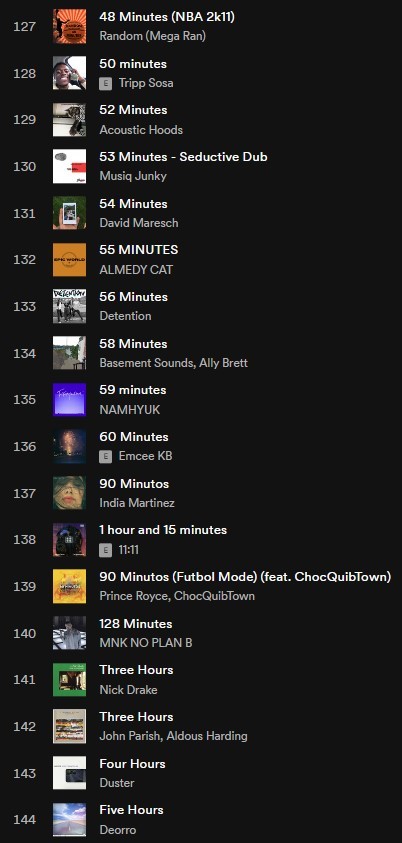
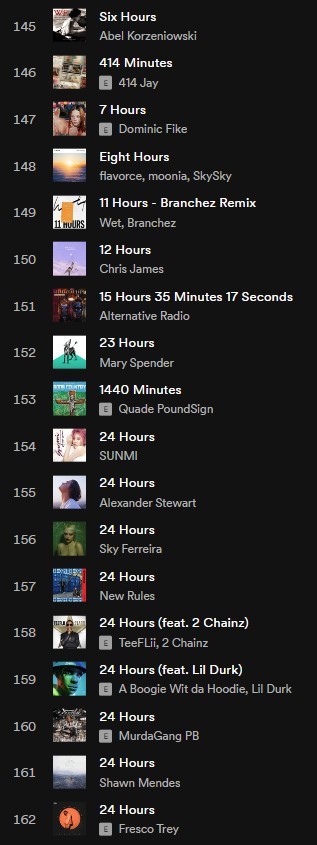
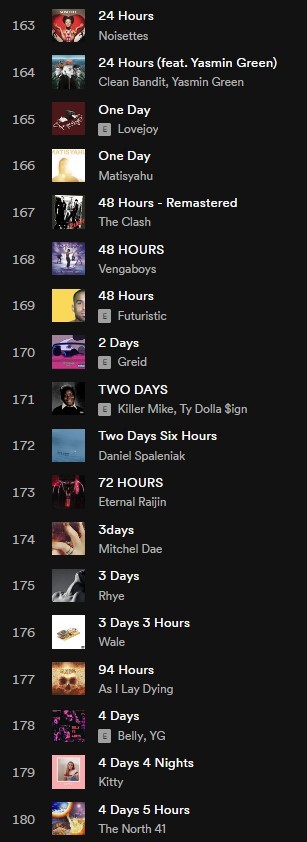
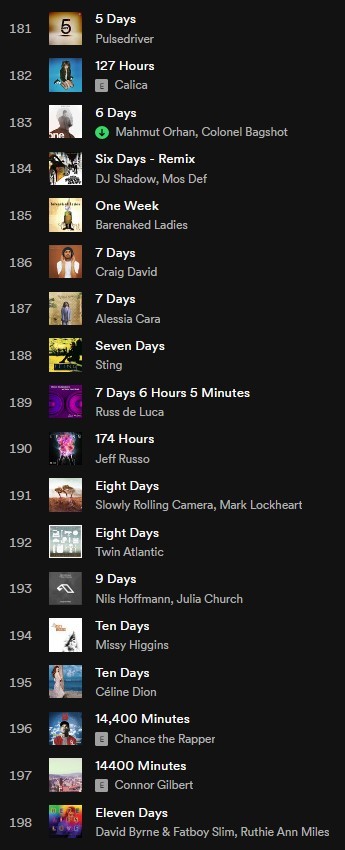
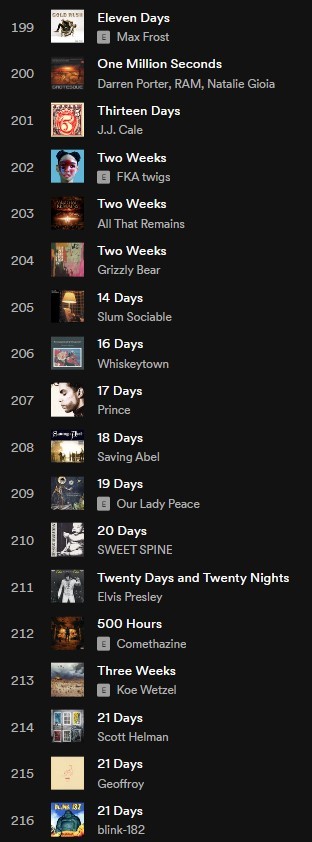
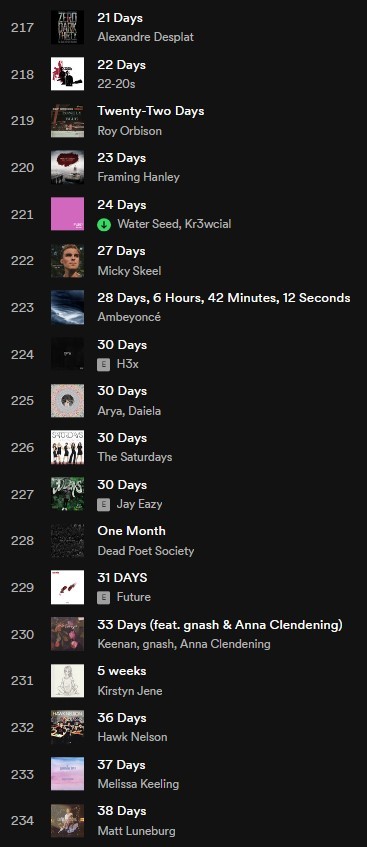
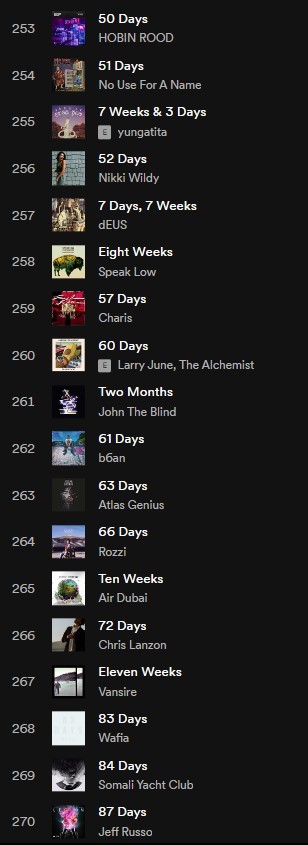
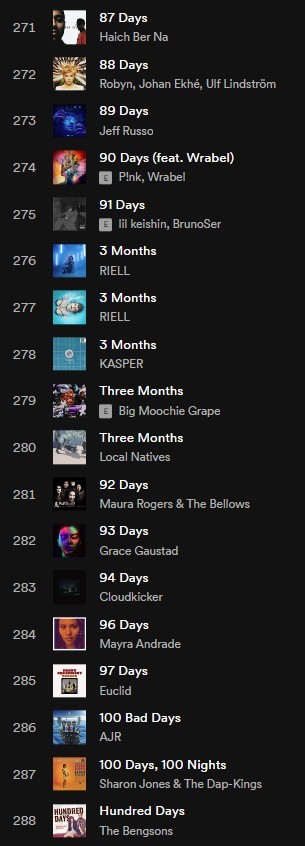
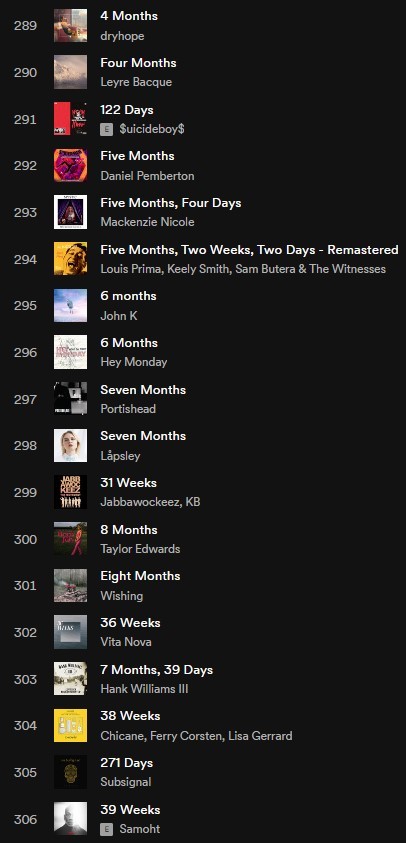
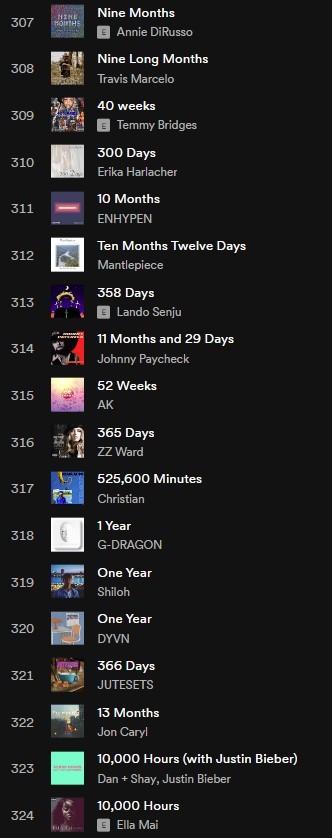
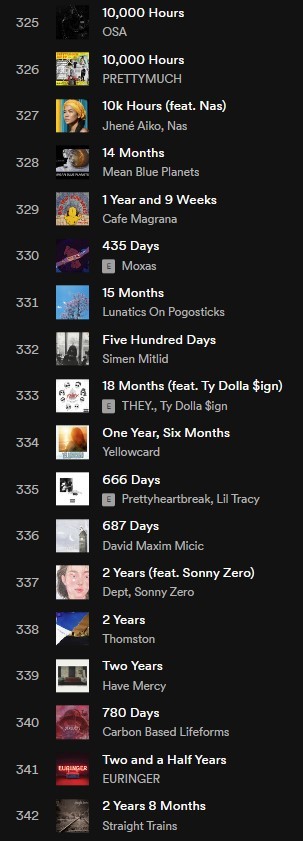
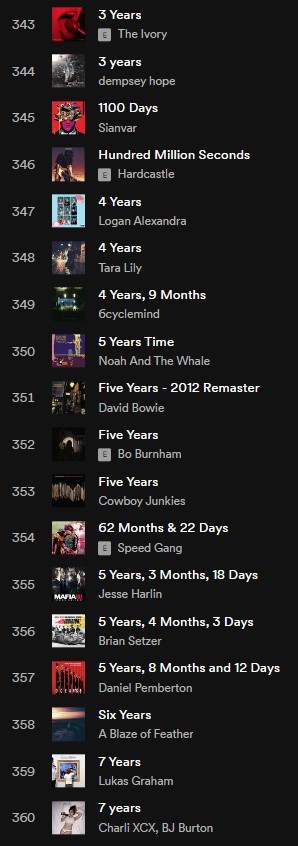
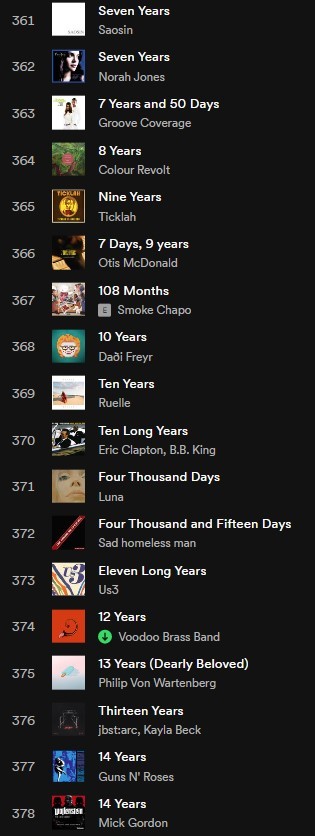

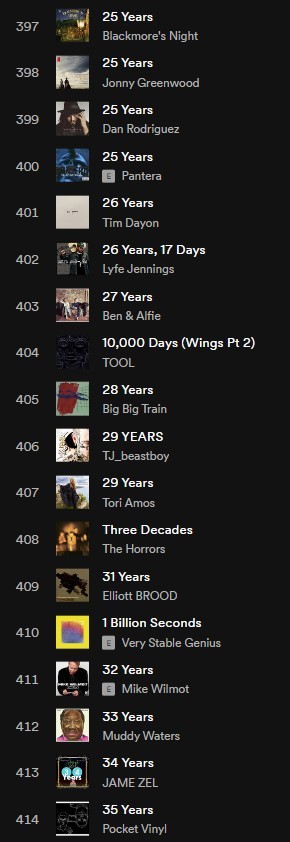
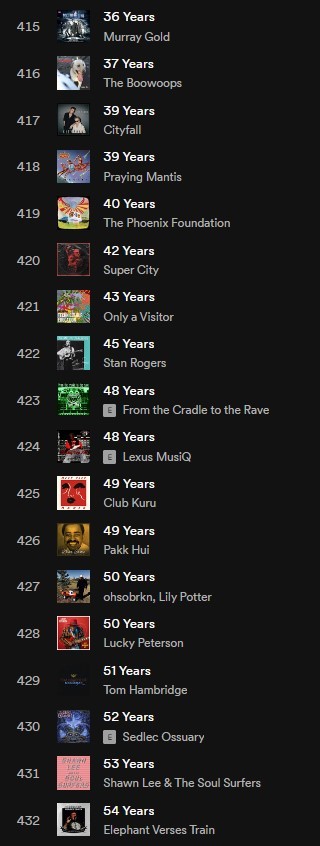
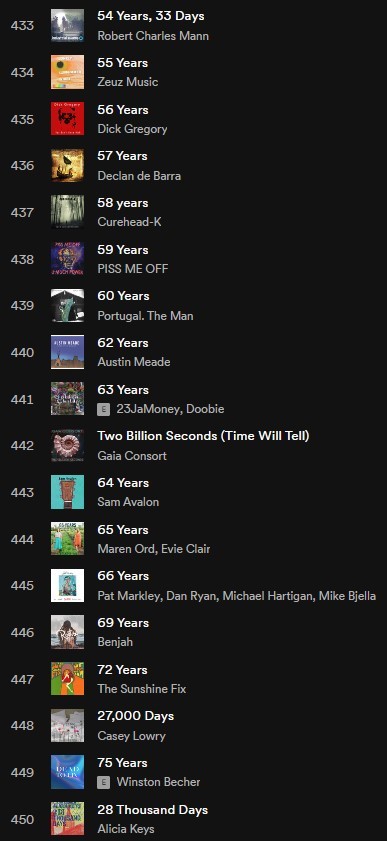
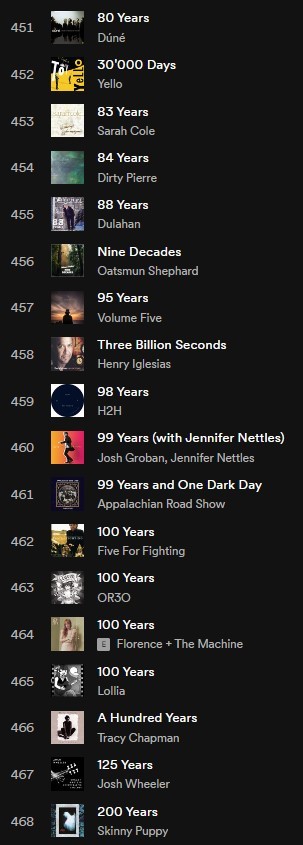
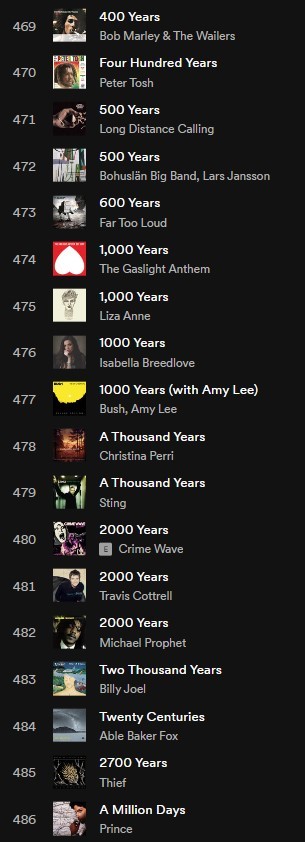
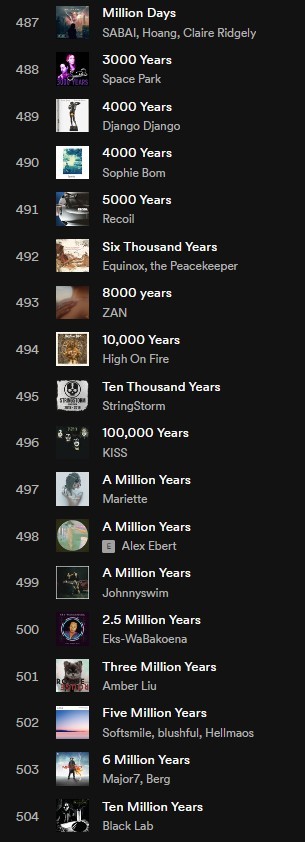
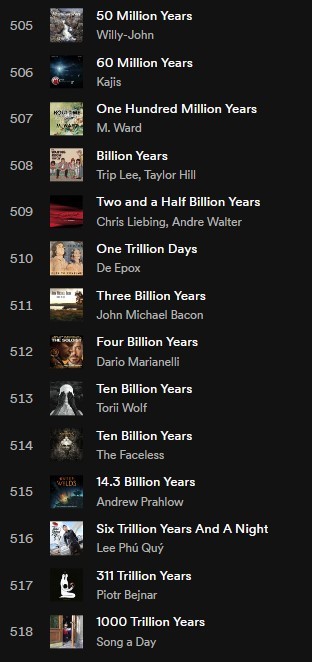
i made a playlist of songs that have a duration as a title
points of interest in this one:
i spent a frankly insane amount of time calculating how long “One Hundred Sleepless Nights” is, which culminated in using government data and an actual spreadsheet
“52 Weeks” < “365 Days” = “525,600 Minutes” < “1 Year”
“5 Years, 3 Months, 18 Days” followed by “5 Years, 4 Months, 3 Days” followed by “5 Years, 8 Months and 12 Days”
4K notes
·
View notes
Text
Why I never loved the "you can't truly make an anti-war movie" line is that the premise is that the language of cinema will, in some way, glorify the war it is supposedly condemning. The assumption there is that the glory lies in the film; it is inventing something that should not be there.
That is of course incorrect - war simply is glorious. Any cursory review of history & society resounds with it. Its glory is socially constructed, for sure, but so are most human emotions. Review the copious quantities of literature from veterans of military conflicts and so many of them speak to the moments they fucking loved it. From the winners, surely, but you even see it in the losers, a sense of meaning, power and identity that defeat took away from them, but that they still grasped in its peaks. Many, maybe the majority, of people who participate in war at least taste this.
And of course war is also monstrous and horrible, and never worth the price of such glory. In sum most participants hate it, or don't even live to have an opinion. People think those are contradictions but they really aren't - the endurance of horror and its mastery is a load-bearing component to the glory that emerges. Obviously media can do a lot to heighten or distort this, but it doesn't invent it; it comes from the reality the media is depicting. And its gonna be there with or without the media - your movie doesn't matter that much, don't make the mistakes of the 2000's media analysis boom all over again.
Film should never be simply one thing ofc, I can think of many segments of war that are a void for this dynamic. But for the films where this quote is relevant, in my opinion the best "anti-war" films actively engage with its glory. Otherwise its like attacking a strawman.
144 notes
·
View notes
Text
I like how they keep the checkmarks on deactivated blogs. like nobles being buried with their jewels
8 notes
·
View notes
Text
nightcore john cage 4'33"
66 notes
·
View notes
Text
mathematics is woke because you solve inequalities and find discriminants
3 notes
·
View notes
Text
it bothers me that when youre doing actual practical computer stuff youre balanced on this immense pile of previous work other people have done, 60 years of teaching rocks to think, and you cant possibly understand all the stuff underneath you, its the product of millions (billions?) of man-hours, so youre stuck just trying to understand the top couple layers wherever is closest to what you need to build off of, and sometimes youre gonna get thrown off by tremors from deep below and you just...dont get to know why.
2K notes
·
View notes
Text
its at the very least immature to want to live forever right? we as mortals need to content ourselves with our legacy, and should we reproduce our heirs. it is good, proper even, to give way to the next generation. so what do you call the guy who walks out the other end of the teleporter after it wrecks your shit? are they not the most perfect imaginable heir? the immediate inheritor of your possessions, life story, and values, with the single difference that they're better located. it would be childish to be skittish
31 notes
·
View notes
Text
I’m going to start calling myself a “reasonable centrist politically” . this is a good idea let’s push the overton window far far far to the left. I basically am though! for a communist
41 notes
·
View notes
